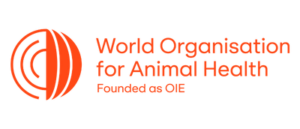WOAH Collaborating Centre
 In 2014, the World Organisation for Animal Health ((WOAH) formerly known as OIE) recognized the Institute for Infectious Animal Diseases (IIAD) as a WOAH collaborating center in biological threat reduction. This designation was made at the 82nd General Session of the WOAH, held in Paris, France.
In 2014, the World Organisation for Animal Health ((WOAH) formerly known as OIE) recognized the Institute for Infectious Animal Diseases (IIAD) as a WOAH collaborating center in biological threat reduction. This designation was made at the 82nd General Session of the WOAH, held in Paris, France.
WOAH is the intergovernmental organization responsible for improving animal health worldwide. It is recognized as a reference organization by the World Trade Organization (WTO) and has 180 member countries. The WOAH maintains permanent relations with 51 international and regional organizations and has regional and sub-regional offices on every continent. There are more than 40 WOAH collaborating centers worldwide, working in areas related to animal health, including animal welfare, food safety, vaccine development and disease surveillance.
WOAH collaborating centers represent expertise in a specific sphere of competence relating to animal health issues. As a collaborating center, IIAD provides its expertise internationally to support and implement animal health initiatives, provide scientific and technical training, and conduct scientific research focused on global animal health. With this designation, IIAD becomes the only biological threat reduction center in the WOAH’s America’s region and the only WOAH collaborating center within the Texas A&M University System.
Both WOAH and IIAD have a long-standing practice of working in partnership with existing organizations in academia, government and private industry; each believe animal health is best advanced by assisting, coordinating and making use of the activities of existing institutions.
IIAD was added to the roster of collaborating centers to strengthen WOAH’s efforts in global biological security. While most animal disease outbreaks occur naturally, there is a real risk that an animal disease may be introduced deliberately. This type of introduction could have a large scale, global impact on animal health, economic viability, food security and public health. Efficient animal health surveillance is key to detecting accidental or deliberate animal disease outbreaks and is one of the most effective and sustainable ways to protect against these threats. The Institute excels in this arena, developing surveillance systems, workforce-training programs, and diagnostic tools, all designed to strengthen early detection, rapid response and quick recovery in the event of animal disease outbreak. This expertise in biological threat reduction is the hallmark of IIAD’s research and development portfolio and adds a strong partner to the WOAH network.
For more information, visit WOAH’s website.


